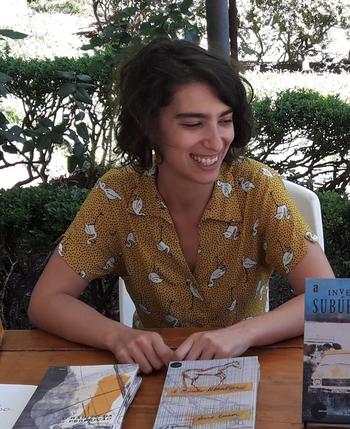Mariana Ruggieri (Universidade Estadual de Campinas)
Early Career Fellow in Research Area 3: "Future Perfect"
May–October 2021
Zapatista poetics: Infra-history and the Future Anterior
The comunicados Zapatistas, beginning with the Primera Declaración de la Selva Lacandona, released on January 1, 1994, have consistently questioned the official archives through captivating discursive strategies that range from manifestos to fables, aphorisms and anecdotes, particularly through the voice and writing of Subcomandante Marcos (now Subcomandante Galeano). These comunicados reference Mayan reality and Mexican history at the same time as they refer to pop culture or literary classics. It could be argued that the comunicados Zapatistas invented a genre of their own – a genre that aims at transcending the borders of EZLN autonomous land in Chiapas without losing sight of its own territoriality. On the one hand, comunicados such as those featuring the prominent figure of Viejo Antonio, himself a translator between the indigenous and Marcos, point towards a dilated temporal frame where Mayan myths inform the coming of Emiliano Zapata. On the other, the Popol Vuh explains the origin of colonial capitalism. Several comunicados are interwoven with texts such as those of Jorge Luis Borges and Miguel de Cervantes – authors who are unlikely allies in terms of their politics or what they represent in relation to the canon. Karl Marx rarely appears and when he does, it is frequently under humorous erasure. This project is interested in exploring this intriguing game of intertextuality and proposes that it seeks a certain open-endedness of temporality, which also implies an open-endedness of language. It has been maintained that the Zapatistas are engaged in a campaign for language; while I do not agree that Zapatista autonomy is reducible to a campaign for language more so than it is reducible to a campaign for land, it certainly seems to involve a form of campaigning for a language of deferral, of worlds that are always already here – at the same time as they are not quite there yet – which keeps summoning collectives of peoples across distant and varied geographies.
Mariana Ruggieri obtained her PhD at the University of São Paulo in 2018. She is currently a researcher at the State University of Campinas (Unicamp), working within the intersection of literature, anthropology and history to advance her book on counter-colonial writings in Latin America. She has been a visiting scholar at the University of Michigan, Universidad Autónoma de México and Archivo General de la Nación, México.
